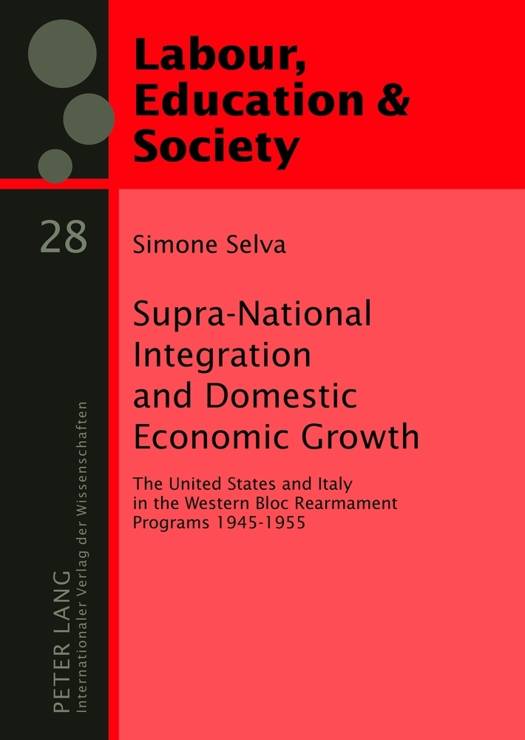
Door een staking bij bpost kan je online bestelling op dit moment iets langer onderweg zijn dan voorzien. Dringend iets nodig? Onze winkels ontvangen jou met open armen!
- Afhalen na 1 uur in een winkel met voorraad
- Gratis thuislevering in België vanaf € 30
- Ruim aanbod met 7 miljoen producten
Door een staking bij bpost kan je online bestelling op dit moment iets langer onderweg zijn dan voorzien. Dringend iets nodig? Onze winkels ontvangen jou met open armen!
- Afhalen na 1 uur in een winkel met voorraad
- Gratis thuislevering in België vanaf € 30
- Ruim aanbod met 7 miljoen producten
Zoeken
Supra-National Integration and Domestic Economic Growth
The United States and Italy in the Western Bloc Rearmament Programs 1945-1955
Simone Selva
€ 65,45
+ 130 punten
Omschrijving
Through a detailed reconstruction of American rearmament programs to Italy from the birth of NATO through the implementation of multilateral military assistance during the early 1950s, this research challenges the idea that the end of reconstruction marked a striking American shift from economic aid to defense policies. The case study of Italy highlights the impact that the defense procurement contracts had both on monetary stability and balance of payments, as well as the integration of the Italian products within the infant European trade area. This monograph demonstrates that through military assistance the United States promoted balance of payments equilibrium and expansionary domestic aggregate demand to lay down the foundation of a mass consumption market. Furthermore, this work makes the point that the Italian elites resorted to Italy's industrial role as production source for NATO to both export manufactured products to the West European economies and import high added value instrumental goods from the U.S. markets.
Specificaties
Betrokkenen
- Auteur(s):
- Uitgeverij:
Inhoud
- Aantal bladzijden:
- 214
- Taal:
- Engels
- Reeks:
- Reeksnummer:
- nr. 28
Eigenschappen
- Productcode (EAN):
- 9783631605790
- Verschijningsdatum:
- 11/10/2012
- Uitvoering:
- Hardcover
- Formaat:
- Genaaid
- Afmetingen:
- 148 mm x 210 mm
- Gewicht:
- 389 g

Alleen bij Standaard Boekhandel
+ 130 punten op je klantenkaart van Standaard Boekhandel
Beoordelingen
We publiceren alleen reviews die voldoen aan de voorwaarden voor reviews. Bekijk onze voorwaarden voor reviews.











